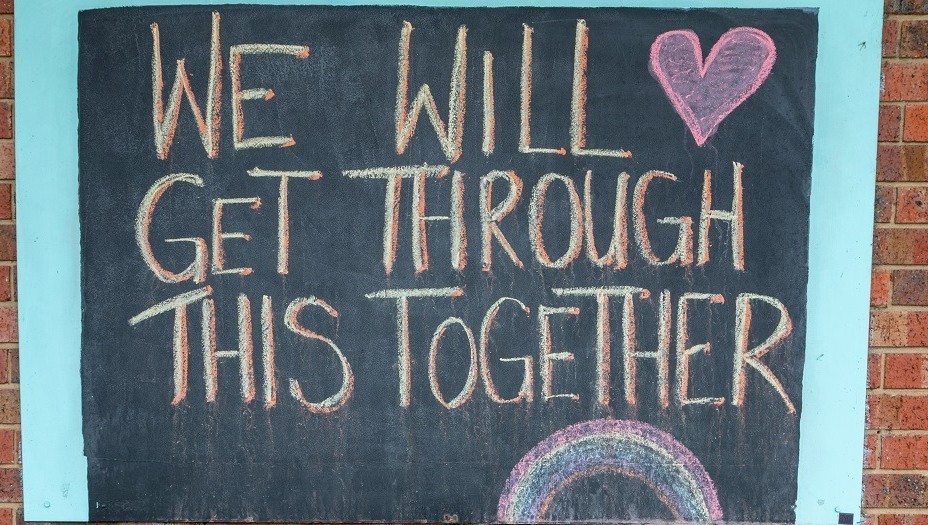
The marketing community faces many new challenges in adjusting to the lockdown and there is a lot more opportunity to come as we adapt to a new normal that will create a whole new landscape for our profession. Since the ‘stay at home’ directive I have had to reinvent things, change my strategy, take into consideration my own feelings, reactions and habits, in order to try and guide the businesses I support into a new era.
So, what’s different? Well I’ve baked bread, planted vegetables, ‘Googled’ symptoms of COVID-19 and why I’m not sleeping. I have searched where to buy random things online like yeast for baking and I’ve watched far too much news. My screen time has gone up but then goes down again – so is this typical behaviour or is it just me? How can find out or use this data when I have little else in terms of AB testing and analytics to compare from the past behaviour?
During the lockdown a range of changes have greatly impacted marketing strategies. People are working from home and being seen at home, often with families integrated into their work patterns. Platforms like Zoom and Microsoft Teams have experienced overwhelming numbers of people now using their online services.
Winners during the early stages of lockdown included business leaders that showed empathy and compassion to the NHS and other keyworkers, as well as their own staff and families. Losers were those who tried to stay open despite the risks, or tried to sell the wrong products and or sought to profiteer from the crisis.
The start of the lockdown saw some amazing changes in the world of commerce and the government strategies that created for marketeers, a new way of working. Within two weeks of lockdown nearly 70 per cent of the British workforce was furloughed and our key opinion leaders and influences radically changed, this was beginning of new opportunity.
The lockdown forced many companies to close doors, but they have all dealt with it in different ways. Never in the history of marketing has so many new campaigns been created so quickly. Tag lines and key words radically changed or adjusted.
Compassion, empathy and support suddenly flowed from advertising and social messaging. Coronavirus and COVID-19 – two words never heard of two months ago – have become key words in communication with hashtags, dedicated web pages set up, stock images created and a multitude of articles drafted.
In the world of social media, the axis has completely shifted. Established ‘influencers’ have been overtaken by one single 100-year-old retired army captain who walked around his garden. As we spent more hours on all platforms our reactions were also shifting. At this point, the marketing community could only monitor and gauge the changes and dig deeper into our own feelings and think ‘how this makes different people feel?’ and how to communicate accordingly.
The world then took a deep breath and we all settled into a new normal. A world where we look daily at how many deaths are recorded. Measuring comparisons against other countries and getting ‘used to’ this new way of being.
The creative sector now had time to think of how to adapt and change their own businesses too. I have never seen so much new creative and positively brilliant material. The world of creative content went mad and businesses, social enterprises and even religious bodies joined the online community in new and original ways. This impacted right down to individuals and families using the internet in new ways to connect through isolation.
Digital platforms, previously untrusted or unneeded found their way into the world’s hearts. Social media platforms saw an overall 40 per cent increase in traffic in the first weeks of lockdown. This included 32 per cent more people reading the news more often. Online transactions increased and shopping habits changed as people looked to entertain and comfort themselves at home.
In the first weeks of the pandemic 69 per cent of people across the globe looked to news channels for information with the second most popular source being social media at 42 per cent.
We have undoubtably globally seen changes in our habits, with further change expected as crisis impacts the economy. Google has created a resource in its platform to track the trends of related search terms to help marketeers.
New elements have been built into its platform to help the government inform people and pages to measure trends. The Google data, at its highest level, outlines five key behavioural factors that reflect in how people are currently searching online:
The marketing community now faces the challenge after adjusting to lockdown ‘marketing’. There is a lot more opportunity as we return to a new normal that creates a whole new landscape for us.
One of the comforting things for people that work in marketing, like myself, is that we now have started to see results from analytics. We can start to measure the impact of the coronavirus pandemic on businesses, and how people, their customers are reacting and behaving, so we can adjust and redevelop business narratives and communication accordingly.
I will provide an update to reveal some of the trends as they emerge from the analysis of behaviours and trends – so stay tuned. And I for one, hope, that we retain this new, more human response to meet the needs of our consumers and customer as the people of the world.  Michaela set up her business Guardian Angels Marketing in 2016. Shortly afterwards she entered Boost’s Growth Support Programme (GSP) and now presents marketing workshops as a Boost delivery partner including helpful online webinars as part of Boost’s #AskForHelp campaign. Guardian Angels Marketing is a digital agency that delivers bespoke services to healthcare organisations looking to improve their brand image. Clients include national and international specialists in biotherapy, pharmaceutical and medical devices. Statistics for digital trends provided by: Statista
Michaela set up her business Guardian Angels Marketing in 2016. Shortly afterwards she entered Boost’s Growth Support Programme (GSP) and now presents marketing workshops as a Boost delivery partner including helpful online webinars as part of Boost’s #AskForHelp campaign. Guardian Angels Marketing is a digital agency that delivers bespoke services to healthcare organisations looking to improve their brand image. Clients include national and international specialists in biotherapy, pharmaceutical and medical devices. Statistics for digital trends provided by: Statista




The website uses cookies.
Some are used for statistical purposes and others are set up by third party services. By clicking 'Accept all & close', you accept the use of cookies. For more information on how we use and manage cookies, please read our Cookie Policy.